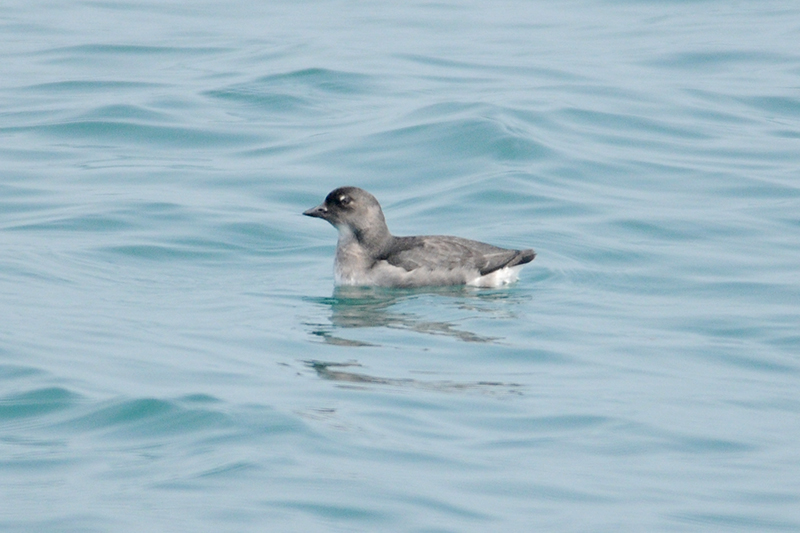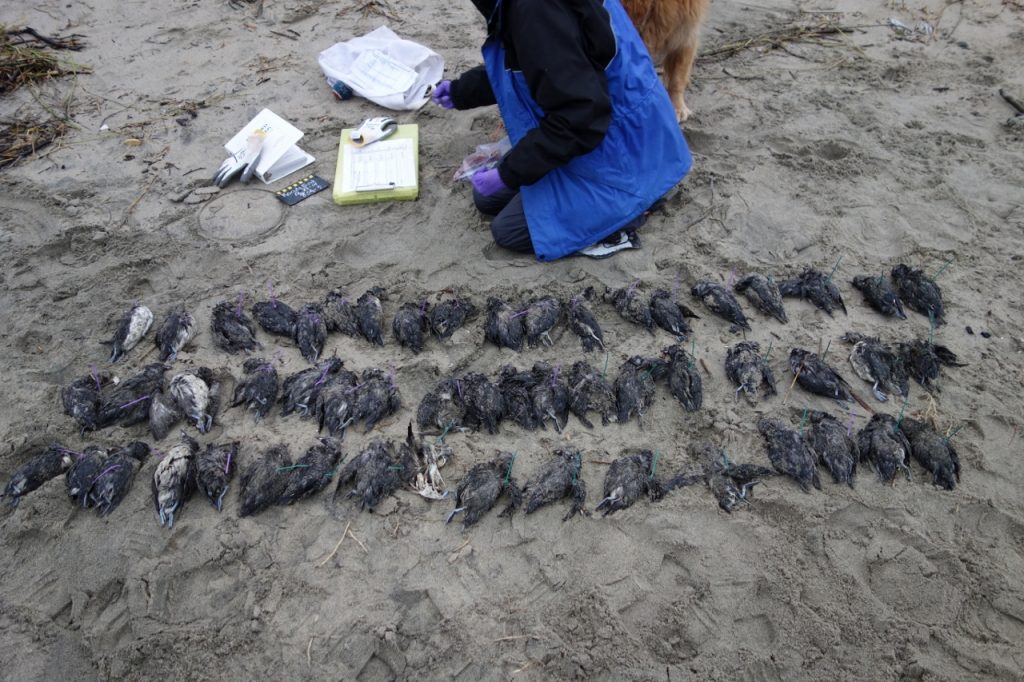For the full story, see the North Pacific Cassin’s Auklet Wreck fact sheet, posted to our website.
Following the Dec 20/21 weekend, COASST participants have seen a wave of Cassin’s Auklets hit the beaches, from Clallam County, Washington to Humboldt County, California. Combining reports from beached bird programs across North Pacific (see previous blog) preliminary estimates suggest that tens of thousands of these birds are washing ashore, at the rate of 10-100 times “normal.”
The Cassin’s Auklet, Ptychoramphus aleuticus is a small (about 200g, or 7 oz) krill and larval fish-eating seabird that breeds along the West Coast of North America from Alaska south to Baja California, Mexico. A majority of birds ( ~80% of the world’s population) breed in the Scott Island group, off the Northwest tip of Vancouver Island. Need more info? Check out BC’s Coast Region Species of Conservation Concern Fact Sheet.
As of Jan 6, 2015, the northern coast of Oregon (Columbia River south to Heceta Head) has had the highest regional per kilometer counts, at 4.3 Cassin’s Auklets/km (Nov) and 5.2 Cassin’s Auklets/km (Dec). The highest per kilometer encounter rate on a COASST survey is from Bayocean Spit (near Tillamook, OR) at 71 birds/km.



I’m an ODFW biologist in Tillamook. Although we recently put out a news release on the ongoing seabird die-off on the Oregon coast and the colored zip-ties used to mark the birds, our office and other offices along the coast are still getting folks removing and bringing in the colored zip ties from the birds. I know we don’t want that to happen, but is COASST doing a lot of public outreach (e.g. signing at beach access points) for folks to leave birds’ ties on? If not, that might help a lot.
Thanks – Herman 503-842-2741 X227
Hi Herman. Good thought! We’re in the process of putting together a poster for exactly this purpose. Most of our outreach is through COASST volunteers, and in the absence of a wreck, most casual beachwalkers do not notice marked carcasses. Thanks again, for the suggestion! ~Jane (Seabird Program Coordinator)